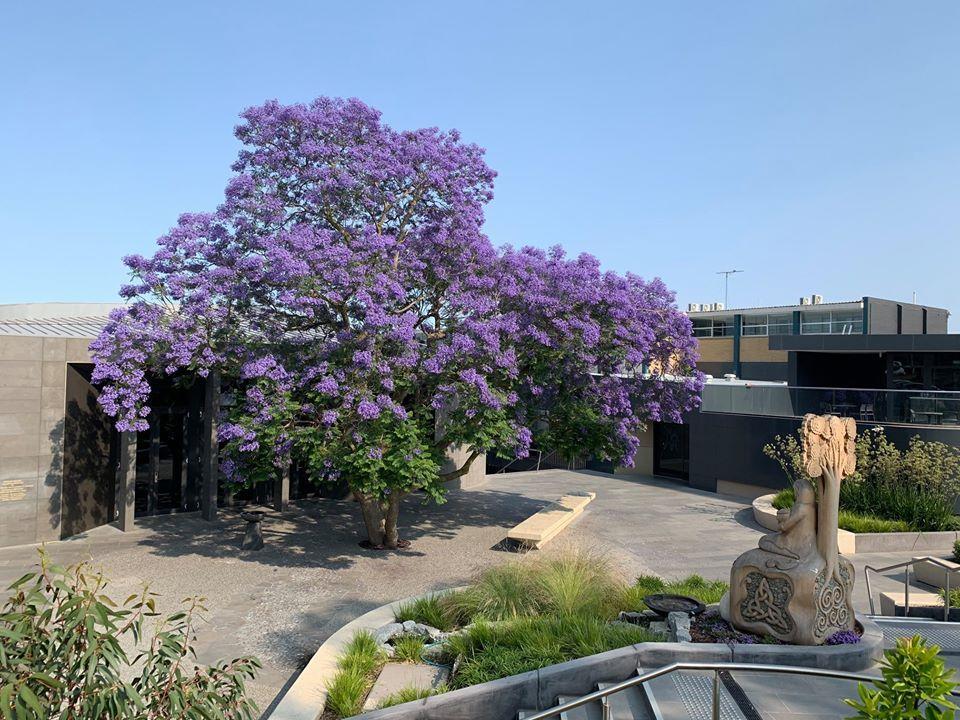
Newsletter
Uniform Shop
9 March 2022
A fantastic way to round out Term 3 with the 2023 Investiture Assembly, An assembly to present the Student Leaders for 2023 to the College
Congratulations to all boys who have been elected!
Sports Captain | Charles Saunders |
Academic Captain | Nicholas Kabiotis |
Arts Captain | Lucas Bonnici |
Ministry Captain | Edward Heath |
College Captain | Benjamin Parker |
Oliver Hester |
Miller Harvey |
Kye McSweeney |
Ryan Maddox |
Samuel Scodella |
James Smith |
Thomas Bartlett |
Thomas Beecham |
Zac Perrett |
Dominic Scarpino |
Dallas Watson |
Max Caruso |
Daniel Gilham |
Patrick Dent |
Vincent Dong |
Heath Daly |
Connor Di Sauro |
Lucas McKinnon |
Sebastian Khoury |
Damien Ponte |
Anthony Gennacarro |
Mark Sernio |
Charles Saunders |
Edward Heath |
Xavier Purcell |
Felix O'Kane |
Ben Parker |
Fabian Babo |
Thomas Horacek |
Daniel Sesto |
Jonah Kelly |
Connor Clifford |
Julian Eid |
Nicholas Kabiotis |
Will Dreier |
Jonathan Verri |
Lucas Bonnici |
Aaron Perillo |
Zac Truccolo |
Nikolas Vorrias |
Patrick Kokotovic |
Jerome Spigulia |
Josh Pace |
On Thursday, 20 Oct in the Michael Perrett Pavilion you're invited to join us for a fantastic evening showcasing our Art & Technology students' work
Finger food and drinks provided with live performances from music, drama and media films through the night.
The VCAL Coffee Cart will be selling hot drinks from $2!
Student art work and folios from Year 7-12 will be on display, as well as a showcase of work from Year 7-12 food studies, product design and technology, and digital technologies.
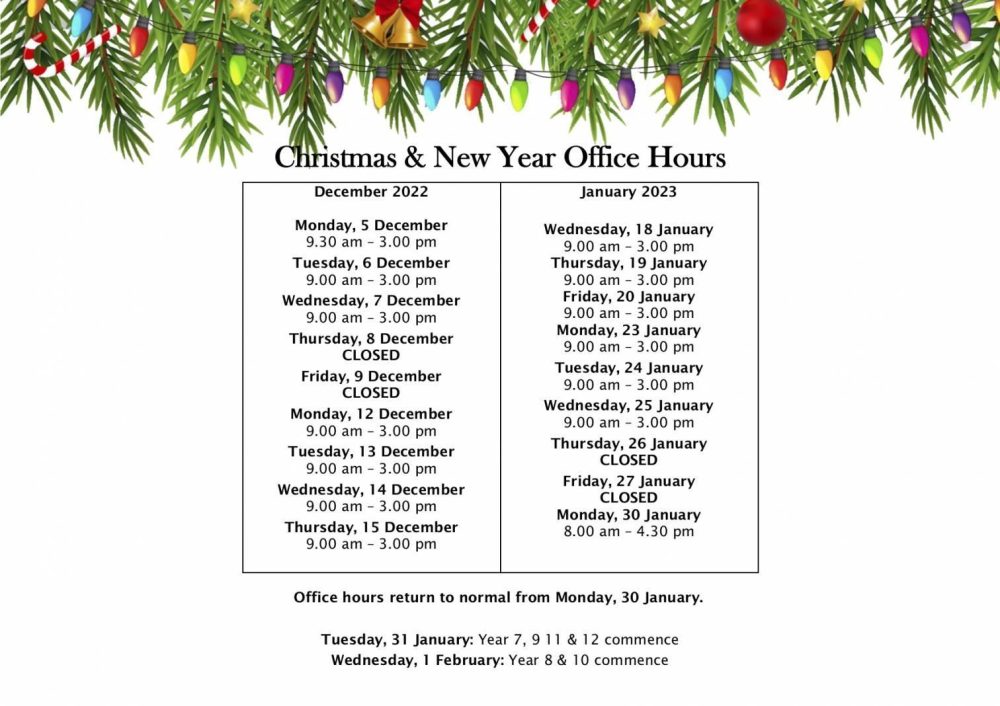
As of May 2020, the Uniform Shop will be operating by appointment only. This will help alleviate lengthy queues during peak periods.
With the phasing in of the new Sun-smart bucket hats next term, we will be selling the remaining stock of SBC baseball caps for $8 each. Please note that the caps will not be available to purchase from October onwards but students will still be permitted to wear them.
Click here to make an appointment
If you know the sizes of the items you require, visit https://shop.sbc.vic.edu.au/ to order online.
For all other uniform enquiries, or to volunteer in the uniform shop, please email rbuhagiar@sbc.vic.edu.au or phone 9289 1176.

VTAC reminder for Year 12 students: you must apply by 29 September

VTAC APPLICATIONS FOR TAFE and UNIVERSITY
Following the last of seven VTAC application workshops, students are now ready to apply for their courses. We have strongly encouraged students that once they submit their preferences, to email myself or Ms Miles, to give us the chance to review their preferences.
‘The basics’:
-VTAC submission date 29 September.
-Students can change their preferences any number of times, between now and 29 September (no extra cost).
-ATAR release 12 December 7AM.
-Change of preference 12-14 December (careers will be available during this time, in case students need to change preferences after ATAR release)

Considering teaching, but also considering a Gap Year? See: https://eel.com.au/traineeship/
Make sure to reach out if you need assistance with your application.
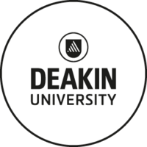
Deakin Campus Tours
Deakin would like to invite your students and their families to a campus tour in the September school holidays. Led by our knowledgeable and friendly current students, the 1-hour small group tours are a great way for students to see our world-class facilities and learning spaces, get a feel for Uni life and ask questions about the courses that interest them.
There's only one way to choose a Uni – they've got to experience it.
Students who might have missed out on the recent Open Day events, or who might like a bit more of a personal tour of the university campuses, are encouraged to register for a Campus Tour these upcoming school holidays.
Below are details of Campus Tours at the Melbourne and Geelong Campuses. Details of the Warrnambool Campus Tour can be found when clicking on the registration link.
Dates: Melbourne Campus: Thursday 22 September OR Wednesday 28 September
Geelong Waurn Ponds Campus: Tuesday 27 September OR Thursday 29 September
Geelong Waterfront Campus: Wednesday 21 September
Times: 9.00am, 10.30am, 12.00pm, 1.30pm, 3.00pm
Register here
![]()
Bachelor of Educational Studies
The Bachelor of Educational Studies has been designed for students who are passionate about becoming teachers, but do not achieve the entry requirements to go directly into one of the suite of Education degrees.
Although the 3-year Bachelor of Educational Studies allows students to gain a qualification to work in education-related fields other than teaching, it is also designed as a pathway for students who wish to consider future study in teaching in Early Childhood and Primary Education. Eligible students who successfully complete their first year of study (subject to meeting certain progression and non-academic requirements) may apply for transfer into the second year of the Bachelor of Education suite of courses. Students who complete the three years of study can progress to a postgraduate Initial Teacher Education qualification.
Students should note that this course alone will not lead to early childhood, primary or secondary teacher registration in Australia.
Find out more at Bachelor of Educational Studies.
![]()
Elite Athletes and Artistic Performers Entry Scheme
If you're an elite athlete or performing artist, you may be eligible for the Elite Athletes and Artistic Performers Entry Scheme.
Additional consideration can be given for entry into Melbourne undergraduate and graduate degrees to applicants who:
are an Australian or New Zealand citizen or Australian permanent resident or holder of a permanent humanitarian visa
are recognised as an elite athlete or performing artist by one of these organisations
meet the prerequisites (and any other published entry requirements) of the course
can demonstrate that they have undertaken elite training, competition, performance and/or practice commitments whilst preparing for entry to the University of Melbourne.
The athletic or performance activity applicants nominate cannot be associated with the degree they are applying for, i.e., elite musicians applying for the Bachelor of Music.
Eligible athletes can also apply to Melbourne's Elite Athlete Program for sports scholarships and support.
Find out more at Elite Athletes and Artistic Performers Entry Scheme.
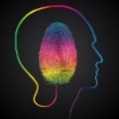
What does a Forensic Psychologist do?
The Australian Psychological Society states that a Forensic Psychologist uses their legal and psychological knowledge to help individuals, government employees and organisations navigate the legal and criminal justice systems.
In court proceedings, Forensic Psychologists use scientifically based principles to assess a client, collect evidence that relates to the psychology of the person, and table a report, and the report is then used in evidence.
Forensic Psychologists would be utilized for areas that include child protection, family services, alcohol and other substance abuse, rehabilitation services (such as pain clinics or head injury services), and research.
Find out more at Forensic Psychology.

Physiotherapist, Chiropractor, Osteopath and Myotherapist
What is the difference? In November 2020 an article by Charlotte Ganderton and Matthew King was published on the ABC website addressing this very topic, and the fact that all four types of therapy come highly recommended to assist people in managing their aches and pains. To sum up the article –
In Australia, physiotherapists, osteopaths, and chiropractors have extensive university training and are registered with the Australian Health Practitioner Regulation Agency (AHPRA). Myotherapists complete an advanced diploma or bachelor’s degree in myotherapy or "musculoskeletal therapy” but are not registered with AHPRA.
The article goes on to state that a physiotherapist assesses your problem, provides a diagnosis, and helps you understand what's wrong while considering your general health, activities, and lifestyle. The physiotherapist treats your complaint with a variety of "active" therapies, such as exercise programs and hydrotherapy.
A chiropractor works on the diagnosis, treatment and prevention of mechanical disorders of the muscles, ligaments, tendons, bones and joints, and the effect on the nervous system.
They have an emphasis on passive manual treatments, including joint and soft-tissue manipulation, and spinal adjustments. They may also prescribe exercises to help you rehabilitate from your condition as well as provide dietary advice.
An osteopath focuses on the muscular and nervous systems, assessing the structure of the body to determine its impact on function. Treatment involves a combination of active and passive therapies, including joint manipulation and mobilisation, massage, as well as postural advice and exercise programs.
Finally, a myotherapist works to assist your aches and pains by focusing on the muscles and joints. They offer a range of mostly "hands-on" treatments including dry needling, massage, and joint mobilisation, but can also prescribe exercises.
Students can access the full article at Physiotherapist, chiropractor, osteopath and myotherapist: what's the difference and which one should I visit?

What does a Clinical Neuropsychologist do?
A clinical neuropsychologist specialises in the assessing and diagnosing of brain impairment and how this affects thinking skills, emotions, behaviour and personality. These specialists are also involved in the rehabilitation and management of the effects of brain impairment and often work with other health professionals.
To find out more about a career as a Clinical Neuropsychologist, visit Clinical Neuropsychologist.

Career in Veterinary Nursing
The Good Careers Guide * states that Veterinary Nurses provide support to veterinarians in the management and care of animals receiving medical and surgical treatment.
The Personal requirements for a Veterinary Nurse include -
Enjoying working with animals
Able to handle animals with confidence and patience
Able to make accurate observations
Having good communication skills
Having good organisational skills
Being able to work as part of a team
Being caring and understanding
Some of the tasks a Veterinary Nurse might have to do include –
Providing animal care advice, and preparing, delivering, and reviewing animal care education programs.
Assisting Veterinarians to administer anaesthetics and oxygen during operations.
Holding animals to allow examination and treatment by Veterinarians.
May act as receptionist, accept payments, and undertake clerical work.
Giving medications to animals.
Placing animals in cages for recovery from operations and monitoring their condition.
Maintaining stock control and records.
May perform diagnostic laboratory tests.
Preparing instruments and handing them to the Veterinarian.
Cleaning and sterilising examination tables and equipment.
* The Goods Careers Guide – Veterinary Nursing
Veterinary Nurses need to have a minimum of a Certificate IV in Veterinary Nursing, although qualifications can include diplomas and bachelor degrees. Some of these can be found at Box Hill Institute, Melbourne Polytechnic, and La Trobe University.

Accounting and Business Information Technology (Professional)
The Bachelor of Accounting and Business Information Technology (Professional) is a prestigious industry degree highly integrated with the real world to maximise your employment outcomes.
In this practical and hands-on course, students will:
Explore how people, information, computers, networks, and processes come together to create cohesive business solutions.
Learn how to use accounting systems to record and analyse business activities, prepare financial statements and management reports, and employ financial statements to guide investment decisions.
Understand how to use information from financial accounting systems to develop operating strategies and evaluate business performance.
Gain skills in designing, building, and implementing software solutions, analysing existing systems, and recommending solutions to address the information needs of organisations.
Leading Australian organisations are involved in the design of this course and in the professional development students. Industry partners include Deloitte, EY, NAB, PwC, Pitcher Partners, Siemens, Unico, and Viva Energy.
In the final year, there is a Business Information Systems Industry Project whereby students team up with other students to work on a real project briefed to them by an industry partner.
Find out more at Bachelor of Accounting and Business Information Technology (Professional).

Freight, Transport, and Logistics Industry
An industry that is continuing to grow is in transport and logistics. There are many careers in this diverse industry from actually driving a truck or train, to being part of the logistics team involved in the planning and distribution of freight and people. A particularly important part of this industry is in international freight – be it freight coming into Australia (imports) from all over the world, or cargo being sent from Australia (exports). People involved in this do not move the freight themselves, but instead act as an agent, connecting exporters, importers, and various transportation services like shipping, air freight, road transport, and rail.
An interesting website to visit is Make Your Move and students can also access videos of current students training in this industry.
There are two universities in Melbourne that offer dedicated logistic courses – RMIT and Victoria University. Students are encouraged to browse the following links providing more information about these courses:
Designed to help to develop a students’ knowledge and interest in contemporary issues central to the logistics and supply chain management industry. This unique degree prepares students for this essential industry, providing them with sought-after knowledge, and both hard and soft skills to allow them to thrive in a challenging and rewarding career. Throughout their studies, students will focus on developing end-to-end supply chain knowledge to deal with day-to-day and strategic supply chain issues.
Diploma of Logistics at RMIT
Designed to give students an understanding of key business areas while they develop specialist knowledge in transport and logistics planning, blockchain in supply chain management, and operations and risk management. This combination of skills, plus opportunities to engage in practical projects and collaborate globally with students and clients, will prepare students to move straight into the workforce after graduation, or to continue on into the bachelor degree.
Bachelor of Business (Supply Chain and Logistics Management) at Victoria University
Students enrol into the Bachelor of Business and study the Supply Chain and Logistics Management major. This major will enable students to pursue a business career in logistics and supply chain management, export/import operations. This major will also give students the skills to work closely with other companies in areas like manufacturing and services.
Logistics units/subjects are often offered in business degrees at universities.
Students are encouraged to browse VTAC for a comprehensive list of what is on offer across tertiary institutions in Victoria.
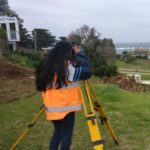
What is Land Surveying?
Interested in Geography, Maths, Science, IT and/or the outdoors? Looking for a job that won’t tie you to a desk? Surveying is the measurement and mapping of our surrounding environment using mathematics and specialised technology. Land surveyors are involved with a diverse variety of projects from land subdivision to tunnel building and major construction.
Importantly though, there is much more to surveying than taking measurements outdoors and then analysing them back in the office. Surveyors are often the first people on site during any construction process; they are the guardians of property law, and the creators of land titles. They are also the ones who can sign off on the position of new title boundaries. In all, surveyors are an integral part of the process in a wide variety of scenarios.
Students who wish to find out what surveying is, what surveyors do, where to study, and what it takes, might like to browse A Life Without Limits.
![]()
News from Victoria University
New Bachelor of Data Science
The Bachelor of Data Science has been designed for students with an interest in statistics, data analysis, machine learning and software development. The course has an industry-focused curriculum with a focus in practical expertise.
With market information and technology evolving at great speed, skilled professionals are needed to transform data into actionable insights for business. The Bachelor of Data Science is designed to meet this demand and give students the tools to analyse trends for business success, and launch a career perfectly aligned to industry needs.
Students will gain targeted expertise in:
mathematics and statistics
exploratory data analysis
machine learning
regression
classification
clustering techniques
text analytics
image and speech processing.
The VCE entry requirements are the completion of the VCE or equivalent, Units 3 and 4: a study score of at least 25 in English (EAL) or 20 in any other English, plus a study score of at least 20 in Mathematics (any).
Find out more about this course at Bachelor of Data Science.
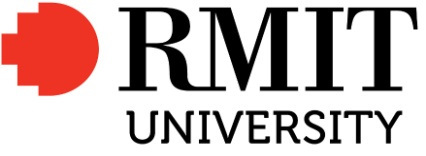
Studying Design Courses at RMIT
Whether you’re passionate about graphic or interior design, merchandising or animation, study at the #1 design university in Asia Pacific.
RMIT offers a range of courses for students who are creative, curious, and keen on studying the creative arts.
Students are encouraged to browse this link to find out about all that is on offer.
Qantas Engineering are offering an apprenticeship program at their hangar facility based at Melbourne Airport. In early 2023, they’re looking to take 15 apprentices to support their aircraft maintenance operations with the recruitment process likely to start around September this year. For more information on the types of apprentices available, please click here: https://www.qantas.com/au/en/about-us/qantas-careers/programs/apprenticeship-program.html
Interested? Click on link above to confirm application details and then notify me immediately if you would like assistance with your application.

Difference between a Bachelor of Laws and the Juris Doctor
The Good Universities Guide provides a useful summary of the many types of law degrees that one can study for in Australia. Two such courses are:
Bachelor of Laws (LLB) -
The Bachelor of Laws is typically a 4-year degree and is open to school leavers with a high enough ATAR (or equivalent) score. This undergraduate degree fulfills the academic side of qualifying for admission into legal practice.
Juris Doctor (JD) -
The Juris Doctor is a postgraduate degree that typically takes 3 years. It is equivalent to enrolling in a LLB as a graduate. The main advantage of a JD over a LLB is that programs are designed to suit graduate students. Students should note though, that the JD normally costs far more than the LLB as, apart from generally higher tuition fees, postgraduate status means students miss out on government financial concessions for undergraduate study.
Students are encouraged to browse Top Law Schools and Degrees in Australia to learn more.
![]()
New Bachelor of Criminology and Criminal Justice degree
The Thomas More Law School has introduced the Bachelor of Criminology and Criminal Justice.
Already proving popular with students in 2022, this course explores the causes of antisocial behaviour and develops the knowledge and expertise needed to make a valuable contribution in the criminal justice sector. Students gain a deep understanding of the complex causes and impact of crime, and the legal and social policies that keep society safe. The degree includes studies in forensic psychology, forensic science, cybercrime, border protection and biosecurity and understanding violence and trauma. All criminology students also undertake a community engagement in the third year of the course.
Find out more at Bachelor of Criminology and Criminal Justice.

Career as a Paramedic
Deciding to become a paramedic is a life-changing decision. For many the first decision they want to make is to decide what type of paramedic training they need.
Being a paramedic is about a lot more than lights and sirens and rushing to help someone in need. Paramedics perform clinical procedures, administer drugs, maintain patient records and decide the most appropriate medical facility to take someone to.
There are different types of paramedics – visit Types of Paramedics.
To find out more about being a paramedic in Victoria, browse the Ambulance Victoria website at Paramedics.